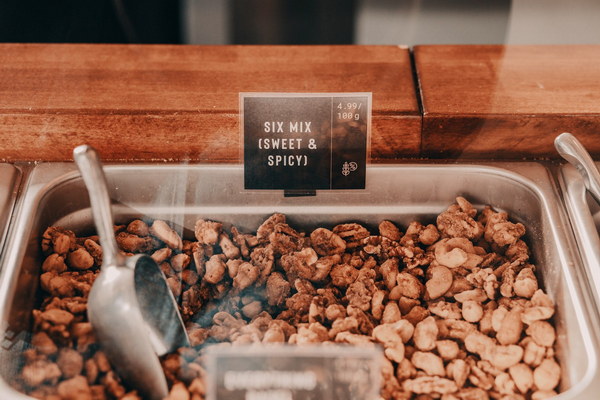Does Mung Bean Porridge Protect the Liver Unveiling the Health Benefits of This Ancient Remedy
In the realm of traditional Chinese medicine, mung bean porridge has long been hailed as a powerhouse of health benefits. But does it truly protect the liver? Let’s delve into the world of mung beans and uncover the truth behind this popular folk remedy.
Mung beans, also known as green beans, are a legume rich in nutrients and antioxidants. They are believed to have numerous health benefits, including protecting the liver. Here’s an in-depth look into how mung bean porridge can be beneficial for your liver health.
1. Detoxification and Purification
Mung beans are known for their detoxifying properties. They contain natural antioxidants that help eliminate harmful toxins from the body. This process is particularly beneficial for the liver, as it is the primary organ responsible for detoxifying the bloodstream. By consuming mung bean porridge, you can support the liver's natural detoxification process and improve its overall health.
2. Antioxidant Protection
The liver is constantly exposed to harmful free radicals, which can lead to oxidative stress and liver damage. Mung beans are packed with antioxidants, such as chlorogenic acid, that can neutralize these free radicals and protect the liver from oxidative stress. This protective effect can help reduce the risk of liver diseases, including cirrhosis and liver cancer.
3. Inflammation Reduction
Chronic inflammation is a significant risk factor for liver disease. Mung beans contain anti-inflammatory compounds that can help reduce inflammation in the liver. By incorporating mung bean porridge into your diet, you can support the liver's ability to combat inflammation and maintain its healthy function.
4. Blood Sugar Regulation
Maintaining stable blood sugar levels is crucial for liver health. Mung beans are low on the glycemic index, meaning they do not cause a rapid spike in blood sugar levels. By including mung bean porridge in your diet, you can help regulate blood sugar levels and reduce the risk of developing type 2 diabetes, which can lead to liver damage.
5. Weight Management
Excess weight is a significant risk factor for liver disease, particularly non-alcoholic fatty liver disease (NAFLD). Mung beans are high in fiber and low in calories, making them an excellent addition to a weight management plan. By incorporating mung bean porridge into your diet, you can help control your weight and reduce the risk of developing liver disease.
How to Make Mung Bean Porridge
Now that you know the benefits of mung bean porridge, here’s a simple recipe to get you started:
Ingredients:
- 1 cup of mung beans
- 8 cups of water
- 1 teaspoon of rock sugar (optional)
- 1 pinch of salt (optional)
Instructions:

1. Rinse the mung beans thoroughly in cold water.
2. In a pot, bring the water to a boil. Add the mung beans and reduce the heat to a simmer.
3. Cook for about 45 minutes to an hour, or until the mung beans are soft. Stir occasionally to prevent sticking.
4. Add rock sugar and salt to taste, if desired.
5. Serve hot or cold.
Conclusion
While there is no scientific evidence to prove that mung bean porridge can completely protect the liver, its numerous health benefits make it a valuable addition to your diet. Incorporating mung bean porridge into your daily routine can support liver health, reduce inflammation, and promote overall well-being. So why not give this ancient remedy a try and enjoy its potential benefits?









